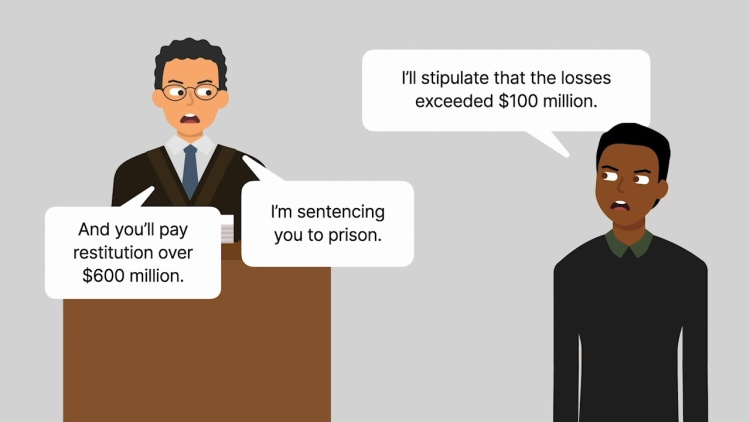Nijhawan v. Holder
United States Supreme Court
557 U.S. 29, 129 S.Ct. 2294, 174 L.Ed.2d 22 (2009)
- Written by Craig Conway, LLM
Facts
Manoj Nijhawan (plaintiff), a lawful resident of the United States, was convicted by a jury of committing mail fraud, wire fraud, bank fraud, and money laundering in violation of several federal laws. But because none of the federal statutes used to convict Nijhawan required a finding of any particular amount of victim loss, the jury made no such finding. At his sentencing however, Nijhawan conceded that the loss to victims exceeded $100 million. The following year, the Department of Homeland Security initiated removal proceedings against Nijhawan. The immigration judge found that Nijhawan’s federal conviction was for a crime involving fraud and deceit with a loss to the victims exceeding $10,000 under the Immigration and Nationality Act (INA) and therefore constituted an “aggravated felony.” INA § 101(a)(43)(M)(i). Nijhawan was ordered to be removed from the United States. The Board of Immigration Appeals (BIA) affirmed the immigration judge’s order. Nijhawan filed a petition against Attorney General Eric Holder, Jr. (defendant) appealing the BIA’s decision to the Third Circuit Court of Appeals. On appeal, Nijhawan argued that the immigration judge erred in applying INA § 101(a)(43)(M)(i) because the federal statutes used to convict him were silent as to the amount of victim loss. The appellate court affirmed the BIA’s decision and concluded that Nijhawan’s conviction fell within the scope of the INA. The U.S. Supreme Court granted certiorari to review.
Rule of Law
Issue
Holding and Reasoning (Breyer, J.)
What to do next…
Here's why 899,000 law students have relied on our case briefs:
- Written by law professors and practitioners, not other law students. 47,000 briefs, keyed to 994 casebooks. Top-notch customer support.
- The right amount of information, includes the facts, issues, rule of law, holding and reasoning, and any concurrences and dissents.
- Access in your classes, works on your mobile and tablet. Massive library of related video lessons and high quality multiple-choice questions.
- Easy to use, uniform format for every case brief. Written in plain English, not in legalese. Our briefs summarize and simplify; they don’t just repeat the court’s language.





